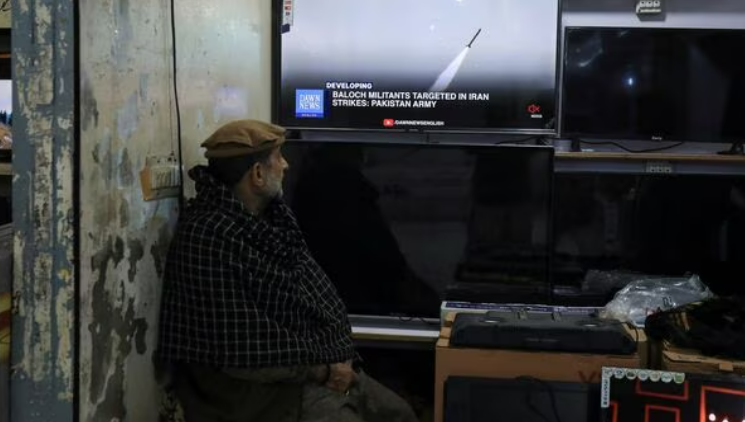A dramatic turn of events, Pakistan and Iran find themselves entangled in a web of tensions that could potentially spiral into a full-scale war. A series of airstrikes has been exchanged, each side claiming to target terrorist hideouts on the other’s soil. As the situation unfolds, the world watches with bated breath, wondering if peace will prevail or if the drums of war will intensify.
The Unfolding Drama:
The recent escalation began with Iran’s military strikes in Balochistan, specifically targeting the Jaish al-Adl militant group. In a tit-for-tat response, Pakistan conducted what it termed “precision military strikes” against alleged terrorist hideouts in Iran’s Siestan-Balochistan province. Unfortunately, amid the crossfire, civilians have become unintended casualties, paying the price for the geopolitical standoff.
National Security Committee Meeting:
As tensions reached a boiling point, Pakistan’s National Security Committee scheduled an urgent meeting to address the crisis. The high-level gathering aims to deliberate on the current situation and devise a strategy to navigate the delicate diplomatic landscape. The eyes of the nation and the world are fixed on the outcome of this crucial meeting, with hopes for a resolution that steers away from the brink of war.
International Ripple Effect:
This regional conflict is not isolated, as Iran’s actions also come in the aftermath of missile launches into Iraq’s Kurdistan region. The Iranian Islamic Revolutionary Guard Corps (IRGC) claimed responsibility for targeting an alleged Israeli ‘spy headquarters’ and ISIS-linked targets in Syria. This broader context adds layers to the complexity of the situation, involving multiple actors with competing interests.
Operation ‘Marg Bar Sarmachar’:
In a move that further heightened tensions, Pakistan initiated missile strikes into Iran under the codename Operation ‘Marg Bar Sarmachar.’ The significance and implications of this operation reverberate not only within the region but also on the global stage. The world anxiously awaits to see if these strikes are a precursor to a larger conflict or if they represent a tactical move to assert dominance and protect national interests.
Diplomatic Channels and Reconciliation:
Amid the ominous drumbeats of war, both Islamabad and Tehran have signaled their willingness to de-escalate tensions. Following Pakistan’s retaliatory strikes, a surprising twist occurred as the country extended a message of reconciliation to Iran. In this message, Pakistan assured its neighbor that it harbors no interest in further escalating hostilities. Diplomatic channels have been activated, with reports suggesting that key regional players are working behind the scenes to diffuse the situation.
The Way Forward:
As the sun sets on this chapter of Pakistan-Iran tensions, the international community remains hopeful that cooler heads will prevail. The delicate dance between conflict and reconciliation continues, with the fate of millions hanging in the balance. In a world already grappling with myriad challenges, the last thing it needs is another flashpoint. The true test lies in the hands of leaders, diplomats, and the resilience of diplomatic channels to steer both nations away from the precipice of war.


